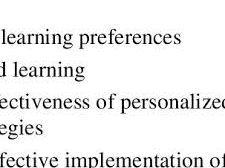As our population ages, the demand for comprehensive and compassionate care services continues to rise. One innovative solution that has gained significant attention is 24 Hour In-Home Care. This type of care provides around-the-clock support to individuals who may be elderly, recovering from surgery, managing chronic illnesses, or facing mobility challenges. In this blog, we’ll explore the various aspects of 24-hour in-home care and how it contributes to the well-being and independence of those in need.
The Personalized Approach:
One of the key advantages of 24-hour in-home care is its personalized nature. Unlike traditional care facilities, in-home care allows individuals to receive one-on-one attention tailored to their specific needs and preferences. This personalized approach fosters a sense of comfort and familiarity, contributing to emotional well-being and a higher quality of life.
Comprehensive Assistance:
Around-the-clock care covers a wide range of services, ensuring that individuals receive assistance with various aspects of daily living. From medication management and mobility support to meal preparation and companionship, 24-hour caregivers are trained to handle diverse needs. This comprehensive assistance enables individuals to maintain their independence and dignity while receiving the help they require.
Emotional Support and Companionship:
Beyond the physical aspects of care, the emotional well-being of individuals is a crucial consideration. Loneliness and isolation can significantly impact mental health, especially for those who may be homebound. 24-hour in-home care providers not only address physical needs but also offer companionship and emotional support. Building meaningful connections with caregivers helps combat feelings of loneliness and promotes a positive mindset.
Maintaining a Familiar Environment:
The comfort of home is unparalleled, and 24-hour in-home care allows individuals to age or recover in a familiar environment. Being surrounded by personal belongings, cherished memories, and the warmth of home can have a profound impact on mental and emotional well-being. This continuity can also aid in faster recovery and rehabilitation, as individuals are in a setting that feels secure and comforting.
Family Involvement:
In-home care encourages family involvement in the caregiving process. Families can actively participate in the care plan, ensuring that the unique needs of their loved ones are met. This collaboration promotes a sense of unity and shared responsibility, fostering a supportive environment for the individual receiving care.
Flexibility and Independence:
24-hour in-home care is flexible and can be adapted to changing needs. As conditions evolve, the care plan can be adjusted accordingly. This flexibility allows individuals to maintain a level of independence that might be challenging to achieve in a more structured care setting. It empowers individuals to make decisions about their daily routines and activities, promoting a sense of autonomy.



